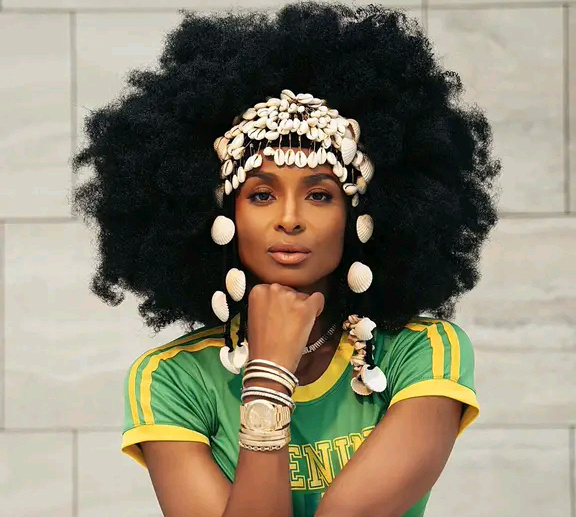Historic Moment: Ciara Becomes First Descendant of Enslaved Africans to Receive Benin Citizenship
3 min read
Historic Moment: Ciara Becomes First Descendant of Enslaved Africans to Receive Benin Citizenship
Grammy-winning singer Ciara has made history by becoming one of the first high-profile individuals to receive citizenship from Benin through a groundbreaking initiative aimed at reconnecting descendants of enslaved Africans with their ancestral homeland. The ceremony took place on July 26 in Cotonou, marking a symbolic moment for both the artist and the West African nation.
 Benin’s citizenship program seeks to heal history and strengthen ties with the Black diaspora. Justice Minister Yvon Détchénou described the program as a step toward repairing deep historical wounds. “By legally recognizing these children of Africa, Benin is healing a historical wound. It is an act of justice, but also one of belonging and hope,” he said during the event.
Benin’s citizenship program seeks to heal history and strengthen ties with the Black diaspora. Justice Minister Yvon Détchénou described the program as a step toward repairing deep historical wounds. “By legally recognizing these children of Africa, Benin is healing a historical wound. It is an act of justice, but also one of belonging and hope,” he said during the event.
Eligibility Criteria
The law grants citizenship to people over 18 who can prove their lineage to victims of the transatlantic slave trade from sub-Saharan Africa, provided they do not already hold citizenship from another African nation. Applicants can submit DNA reports, authenticated testimonies, or historical family records. To streamline the process, the government launched a digital platform, My Afro Origins, allowing descendants worldwide to apply.

Significance of Benin’s Efforts
Benin’s efforts carry profound weight due to its significant role in the slave trade. An estimated 1.5 million people were taken from the Bight of Benin region—modern-day Benin, Togo, and parts of Nigeria—by European traders, often with the involvement of local kingdoms. Benin has openly acknowledged its part in the slave trade, hosting conferences since the 1990s and issuing formal apologies.

Ciara’s Emotional Response
After receiving her citizenship, Ciara walked the historic paths, reflecting on their significance. “Between emotion, reflection and heritage, I experienced a profound return to what truly matters,” she shared. This moment symbolizes a powerful reconnection between Africa and its diaspora, inspiring others to explore their roots while acknowledging the complex history that shaped them ¹ ².
[8/13, 5:52 AM] Business assistant: Historic Moment: Ciara Becomes First Descendant of Enslaved Africans to Receive Benin Citizenship
CHECK ALSO: Historic Moment: Ciara Becomes First Descendant of Enslaved Africans to Receive Benin Citizenship
Grammy-winning singer Ciara has made history by becoming one of the first high-profile individuals to receive citizenship from Benin through a groundbreaking initiative aimed at reconnecting descendants of enslaved Africans with their ancestral homeland. The ceremony took place on July 26 in Cotonou, marking a symbolic moment for both the artist and the West African nation.
A Step Towards Healing Historical Wounds
Benin’s citizenship program seeks to heal history and strengthen ties with the Black diaspora. Justice Minister Yvon Détchénou described the program as a step toward repairing deep historical wounds. “By legally recognizing these children of Africa, Benin is healing a historical wound. It is an act of justice, but also one of belonging and hope,” he said during the event.
Eligibility Criteria
The law grants citizenship to people over 18 who can prove their lineage to victims of the transatlantic slave trade from sub-Saharan Africa, provided they do not already hold citizenship from another African nation. Applicants can submit DNA reports, authenticated testimonies, or historical family records. To streamline the process, the government launched a digital platform, My Afro Origins, allowing descendants worldwide to apply.
Significance of Benin’s Efforts
Benin’s efforts carry profound weight due to its significant role in the slave trade. An estimated 1.5 million people were taken from the Bight of Benin region—modern-day Benin, Togo, and parts of Nigeria—by European traders, often with the involvement of local kingdoms. Benin has openly acknowledged its part in the slave trade, hosting conferences since the 1990s and issuing formal apologies.
Ciara’s Emotional Response
After receiving her citizenship, Ciara walked the historic paths, reflecting on their significance. “Between emotion, reflection and heritage, I experienced a profound return to what truly matters,” she shared. This moment symbolizes a powerful reconnection between Africa and its diaspora, inspiring others to explore their roots while acknowledging the complex history that shaped them.






